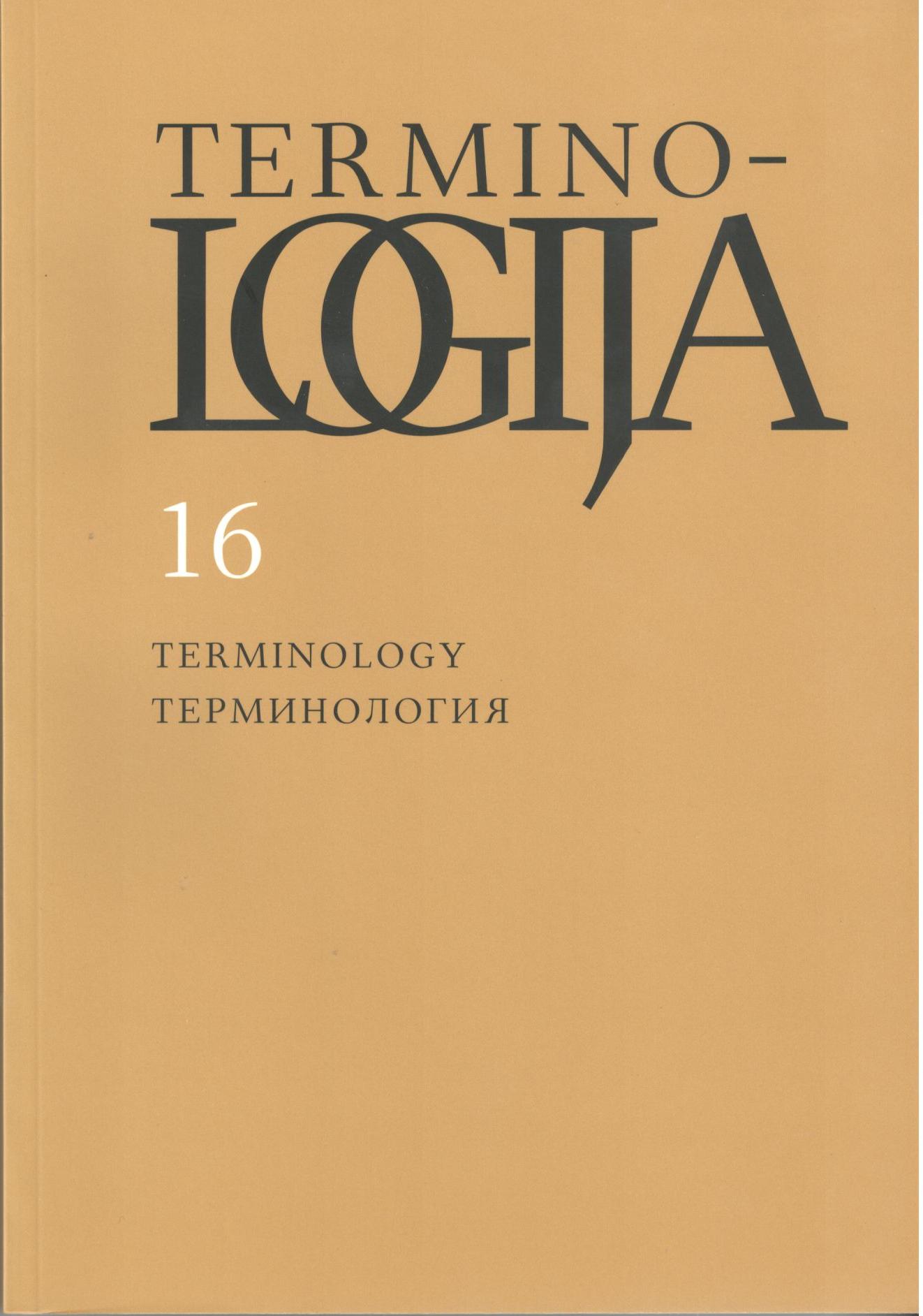Iš sporto terminijos istorijos: antikizmai, istorizmai ir modernizmai – anachronizmai
From the history of sports terminology: anticisms, historisms and modernisms – anachronisms
Author(s): Jonas KlimavičiusSubject(s): Language and Literature Studies, Lexis, Semantics, Descriptive linguistics, Baltic Languages, Sports Studies, Philology
Published by: Lietuvių Kalbos Institutas
Keywords: sports terminology; aticism; historism; modernism;
Summary/Abstract: The history of Lithuanian sport is relatively short, though the history of Lithuanian sports terminology covers the whole concept system of world sport (from the times of Antiquity), its alternations and development. It has not been researched consistently, and only such research could have an essential input into its normalization, creation of Lithuanian equivalents and adjustment of terms for the Lithuanian language. There was a lot of variation, even disarray, disregard and distortion of the historical reality of terminology. Dictionaries of sport (1959, 1996, and 2002) helped to reduce them, but still a lot of effort is needed, especially in the field of usage.In 1935 a term Olimpijos žaidimai (Olympic Games) was recorded. During soviet times based on the analogy of the Russian term it was changed into olimpinės žaidynės. There is an attempt being made to reintroduce Olimpijos žaidynės, though such attempt is stumbling over the lack of understanding of Lithuanian grammar. The usage of olimpinės žaidynės instead of historical Olimpijos žaidynės looks like the usage of atėninės žaidynės instead of Atėnų žaidynės (Olympic Games in Athens).The motivation of the adjective in olimpinės žaidynės is clear, though next to numerous reasoned word-combinations with this adjective there are many indefinite, elaborate, empty and frequently clichéd word-combinations.Mostly because of the influence of the Russian language olimpiada is frequently used not in the meaning of Olimpijos žaidynės (Olympic Games) (though in this meaning olimpiada is supported by spartakiada, universiada,...), but in the meaning of ‘a period of four years between games’. From the most contemporary meaning of olimpiada – ‘school competition in a particular subject’ – the words olimpiadinis (but not olimpinis) and olimpiadininkas (but not olimpietis) are derived.The word olimpietis (participant in the Olympic Games) inconsistently appeared in accordance to the Russian word олимпи-ец, which was misunderstood. Consistently it would be олимпи-ец : Олимпи-я (compare Polish olimpij-szyk : Olimpj-a, German Olympi-er : Olympi-a). The Lithuanian form olimpietis goes further from Olympia and closer to Olympus. Olimpiadininkas (participant in Olympic Games) is left at the school competition level. In other languages olimpietis turns into a rather modest ‘participant in the games’ – participant in Olympic Games in English, Olympiakämpfer, and Olympiateilnehmer in German.Ancient olimpionikas ‘a winner of the games in Olympia’ sometimes is being allowed and proposed in the meaning of ‘a winner of the Olympic Games’.The word gimnastika (gymnastics) was inherited from Greeks, but the content of this concept has changed a lot (the same with gimnastas (gymnast)). Greek gimnasionas (a school in ancient Greece) and modern gimnazija (gymnasium) differ even more. Stadionas (stadium) has not changed much, but its antique foundation stadijas is now just a historism. Hipodromas (racecourse) was inherited without serious alterations.The clearest antique historisms are agonas (agon as ‘contest’) (recorded in 1936) and helanodikas (Hellanodikos), pentatlonas (pentathlon), pankrationas (pankration) and similar words are well known.Anachronisms of terminology, i.e. terms of the modern sport (modernisms) used instead of well-known historisms when talking about the ancient athletics are unwanted. Such are, for example English words sportas (sport) – instead of antique atletika (athletics) and gimnastika (gymnastics) and treneris (trainer, coach) – instead of aleiptis. In these cases historical reality is distorted.
Journal: Terminologija
- Issue Year: 2009
- Issue No: 16
- Page Range: 116-153
- Page Count: 38
- Language: Lithuanian

